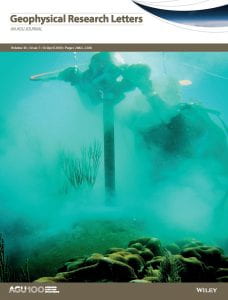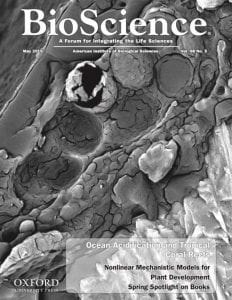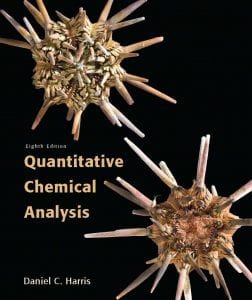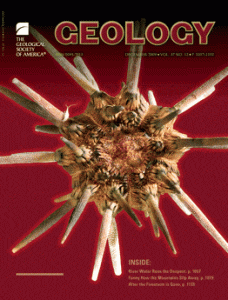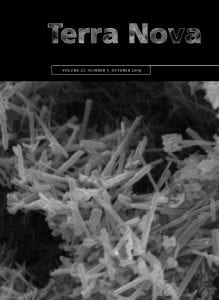RIES LAB IN THE NEWS
“Sea otters are a lifeline for reefs in a changing ocean”, by Mike Woeste, Northeastern Global News, February 2021. LINK
Navigators secure second straight Charter School state championship, by Joeseph McConnell, Marblehead Current, December 2025. LINK
“Climate change, human activity lead to nearshore coral growth decline in world’s 2nd largest reef”, UNC News, August 2019. LINK
“Amazing Tide Pool Creatures Face Looming Threat of Climate Change” by Jaymi Heimbuch. Treehugger, October 2018. LINK
“Lobster Shellshock”, by Patrick Whittle, The Seattle Times, May 2018. LINK
Ries Lab research featured on cover of the journal Geophysical Research Letters, April 2018.
“Great Barrier Reef bleaching endangers precious resources”, by Thea Singer, News @ Northeastern, March 2017. LINK
“Future ocean acidification to expose over half of marine calcifiers to dissolution,” Northeastern.edu, November 2016.
“New insights into the impacts of ocean acidification,” Science Daily, September 2016. LINK
Ries Lab research featured on cover of the journal BioScience, October 2016.
“New setup at the MAREE: ZMT tests effects of ocean acidification and warming on corals,” by Andrea Daschner, Leibniz-ZMT.de, June 2016. LINK
“As atmospheric CO2 rises, crabs have harder time opening oysters,” Northeastern.edu, February 2016.
“Changing waters complicate NC’s coastal ecology,” by Jared Brumbaugh, News and Observer, November 2015. LINK
“Urchin isotope composition can shed light on past oceanographic conditions,” Northeastern.edu, October 2015.
“Using living boulders to reconstruct the history of ocean acidification,” Northeastern.edu, April 2015.
“MSC faculty member receives prestigious German fellowship,” by Val Perini, Northeastern.edu, December 2014.
“A slightly more acidic ocean may help coral species,” by Joe O’Connell, News @ Northeastern, November 2014. LINK
“Deep water data,” by Angela Herring, News @ Northeastern, September 2013. LINK
“How corals can actually benefit from climate change effects,” Phys.Org, November 2014. LINK
“Acidic Chesapeake Bay Water could threaten oyster,” Fox News, February 2014. LINK
“Ocean acidification: Making sense of crabs and skeptics,” by Joe Eaton, Bay Nature, October 2013. LINK
“Crabs, supersized by carbon pollution, may upset Chesapeake’s balance,” by Darryl Fears. The Washington Post, April 2013. LINK
“Pollution tilts undersea arms race,” by Tom Pelton. The Environment in Focus – Maryland Public Radio, May 2012.
“Crab vs. Oyster: As Acidity Increases, Some Species May Win and Others Lose,” by Jeffrey Brainard. Chesapeake Quarterly, March 2012. LINK
Postdoctoral fellow Karl Castillo Awarded UNC Postdoctoral Scholar Award for Research Excellence, September 2011. LINK
HD VIDEO: “Researchers study coral growth in Mesoamerican barrier reef” by Rob Holliday. UNC News, May 2011. LINK
“Diving deep into coral science” by Tyler Dukes. Raleigh News and Observer/Charlotte Observer, April 2011. LINK
“Coral growth bands reveal survival clues” by Patric Lane. UNC Gazette, May 2011.
“New study finds growth of corals on the Belize Barrier Reef is slowing” by John Bruno. Climateshifts.org, February 2011. LINK
“On coral reef, location seals fate” by Patric Lane. Futurity.org, February 2011.
Ries Lab research featured on the cover of the textbook “Analytical Chemistry”, by Daniel C. Harris (WH Freeman).
“Gulf of Maine changing” by Kelsey Abbott & Justin Ries. Bangor Daily News, August 2010. LINK
Iglesias-Rodriguez & Ries Response to US Senate Subcommittee Hearing (SR-253) hearing on The Environmental and Economic Impacts of Ocean Acidification, May 2010. LINK
“US Senate Commerce, Science, and Transportation Subcommittee (SR-253) hearing on The Environmental and Economic Impacts of Ocean Acidification” (times: 72:30; 75:30; 100:00; 102:30), April 2010. LINK
Ries Lab research featured on cover of the journal Geology, December 2009.
“Giant lobsters from rising greenhouse gases?” by Guy Raz. All Things Considered — National Public Radio, December 2009.
RADIO BROADCAST
TRANSCRIPT
“Ocean acidification: a risky shell game — How will climate change affect the shells and skeletons of sea life?” by Kate Madin. Oceanus, December 2009. LINK
“Acidic oceans may be a boon for some marine dwellers,” by DeLene Beeland. Science, December 2009. LINK
“Consider the lobster,” by Olive Heffernan. Nature — Climate Change, December 2009. LINK
“New climate change signal: oceans turning acidic,” by Peter Spotts. Christian Science Monitor, December 2009. LINK
“Climate change creates shell-size surprise,” by Daniel Cressey. Nature, December 2009.
“Some lobsters, crabs withstand ocean’s CO2 increases,” by Dan Vergano. USA Today, December 2009. LINK
“More CO2 in seas helps some shells, study finds.” MSNBC, December 2009. LINK
“Acid ocean test looks to the past,” by DeLene Beeland. Science in the Triangle, December 2009.
“Prepare for a lobster-full future: Acidic oceans could help some critters,” by Brett Israel. Discover Magazine, December 2009. LINK
“Lobsters to be supersized by climate change?” by Brian Handwerk. National Geographic, December 2009.
“Extra carbon dioxide bulks up lobsters,” by Sarah Everts. Chemical and Engineering News, December 2009. LINK
“Will acid seas result in giant shellfish?” by David Braun. National Geographic News, December 2009. LINK
“Some ocean dwellers increase their shell-size when exposed to more CO2,” by Kimberly McGuire. Saint Louis Dispatch, December 2009.
“A more acidic ocean won’t harm all shell builders, research indicates,” by Scott Learn. The Oregonian, December 2009. LINK
“Changing oceans mean losers and winners among species,” by Dale Neal. Asheville Citizen-Times, December 2009.
“Study: Acidified water good for lobsters.” UPI, December 2009. LINK
“Acid oceans can trigger thicker shells,” by Emma Woollacott. TGDaily, December 2009.
“Excess CO2 strengthens some organisms, findings show,” by Analia Murias. Fish Information and Services, December 2009.
“Sea creatures build larger shells — all because of ocean acidification,” by Tudor Vieru. Softpedia, December 2009. LINK
“Acidified water proves to be good for lobsters, crabs and shrimp.” EcoWorld, December 2009.
“In CO2-rich environment, some ocean dwellers increase shell production.” EurekAlert, December 2009. LINK
“Jumbo shellfish rule in acidic oceans.” Futurity.org, December 2009.
“Acid test: Study reveals both losers and winners of CO2-induced ocean acidification.” Environmental Awareness Report, December 2009.
“In CO2-rich environment, some ocean dwellers increase shell production.” FreeRepublic, December 2009. LINK
“Surprise find: some shellfish benefit from CO2.” X-Ray Magazine, December 2009.
“In carbon dioxide-rich environment, some ocean dwellers increase shell production.” Science Daily, December 2009. LINK
“Acid test: UNC study reveals both losers and winners of CO2-induced ocean acidification,” by Patric Lane. UNC Press Release, December 2009. LINK
“In CO2-rich environment, some ocean dwellers increase shell production,” by Joel Greenberg. WHOI Press Release, December 2009. LINK
Ries Lab research featured on cover of the journal Terra Nova, October 2009.
“In African rocks, traces of evolutionary blast,” by Jennifer Leonard. Futurity.org, August 2009.
“Old rocks breathe fresh air into evolution debate,” by Patric Lane. UNC News, August 2009.
“Off-balance ocean,” by Rachel Petkewich. Chemical and Engineering News, February 2009. PDF
“The many dangers of greenhouse gases,” by Richard Kerr. Science, January 2009. PDF
“Marine calcifiers in a high-CO2 ocean,” by Victoria Fabry. Science, April 2008. PDF
“Surprise! Corals switch their skeleton as seawater changes,” by Lisa DeNike. The Gazette, July 2006. PDF
“Corals adapt to sea change,” by Carolyn Gramling. Geotimes, September 2006. PDF
“Corals undergo sea change,” by Ken Ferguson. Frontiers in Ecology and the Environment, August 2006. PDF
“Coral polyps can adjust skeletons to water chemistry,” by Sara Goudarzi. FOXNews.com, July, 2006.
“Sea change: skeletons of ancient corals different from today’s,” by Lisa DeNike. The Gazette, November 2004. PDF
“Sea change had major effect on coral reefs: Ocean chemistry led to death, rebound, JHU student finds,” by Dennis O’Brien. The Baltimore Sun, November, 2004. PDF
